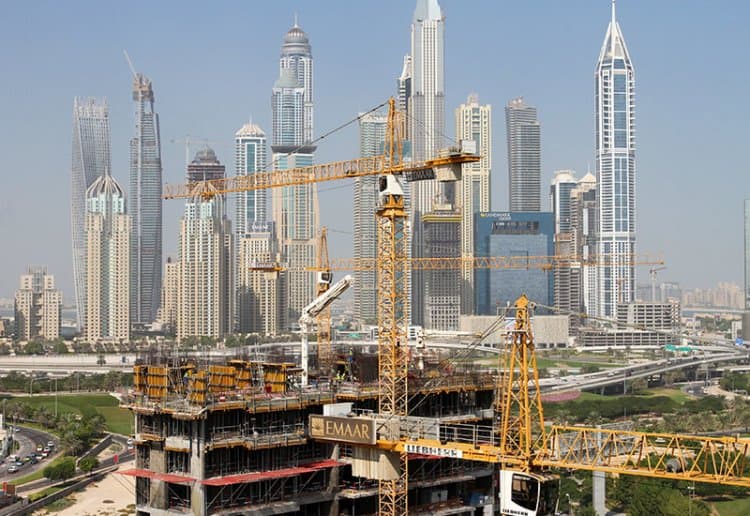
UAE’s construction sector is set to make a comeback in 2023
Despite having a low debt-to-GDP ratio, the Gulf region's reserves were severely impacted by the dramatic decline in oil prices during the pandemic era. The Institute of International Finance (IIF) predicted that assuming an average oil price of $44 per barrel, the aggregate current-account balance for the nine MENA oil exporters will go from a $64 billion surplus to a whopping $104 billion deficit in 2020.
The pressure put on the UAE economy by the severe decline in oil prices and the resulting slowdown in activity because of the pandemic led rating agencies to take action on UAE enterprises in the real estate, trade, retail, transportation, and hospitality sectors in 2020.
The year, 2022 marked a full-time economic recovery in the post-covid era. This recovery created a demand for oil and natural gas in the global markets which helped middle eastern countries, especially UAE to liquidate their sovereign wealth. This has caused UAE to venture into high-rise building construction programs and stabilize retail inflation in the UAE economy.
Along with these unique advantages to UAE and other middle eastern countries, the dip in shipping costs and building materials costs add to the optimistic image of the construction sector of U.A.E. in 2023. Commercial construction, industrial construction, infrastructure construction, energy & utility construction, institutional construction, and residential are the primary sectors in the UAE construction market.
The commercial construction sector is predicted to grow in real terms in 2023, aided by the ongoing recovery of the tourism and hospitality industries. The government unveiled the Dubai 2040 Urban Master Plan in March 2021, with an intent to increase the area of land to be used for hotels and tourist activities by 2040.
To improve the industrial sector's contribution to GDP by 2031, projects worth USD 300 Billion, headed by the government, are projected to assist the industrial construction sector's expected growth in 2023. In addition to its efforts to promote long-term economic diversification following the UAE Economic Vision 2030 plan, the government's emphasis on enhancing the business climate will help the sector's output throughout the projection period.
Considering the government's efforts to create a sustainable transportation system under the Traffic and Transportation Plan 2030, it is anticipated that the infrastructure construction industry will grow.
The government's goal to achieve carbon neutrality by 2050 will encourage additional investments in the renewable energy industry, which will result in an increase in the actual size of the energy and utility sector during the following years. The Abu Dhabi National Oil Company (“ADNOC”) announced in December 2021 that it would invest a sizeable sum on capital expenditures from 2022 to 2026.
Investments in projects related to health, education, and museums are anticipated to assist the institutional building industry. The government has allotted a sizeable portion of the budget to the healthcare and education sectors. The residential sector is anticipated to benefit from escalating housing demand as well as financial investments made as part of the Sheikh Zayed Housing Programme. The ambitious projects devised by the public and private sectors of the United Arab Emirates set up a stage for 2023. It is anticipated that the construction industry would witness a boom this year, resulting in an increase in employment possibilities and economic growth.
For any enquiries or information, contact ask@tlr.ae or call us on +971 52 644 3004